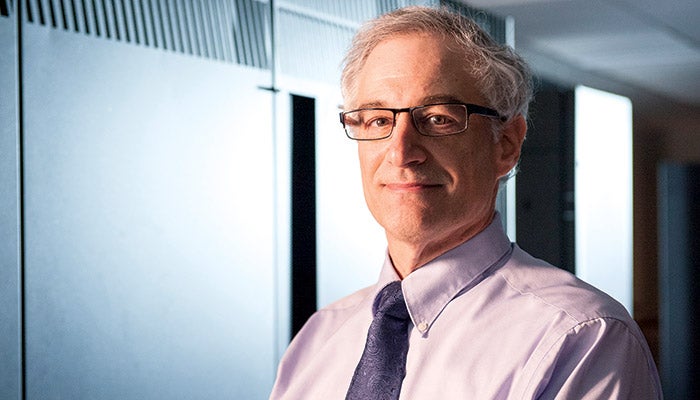Joel Plawsky has been named head of the Howard P. Isermann Department of Chemical and Biological Engineering. Plawsky is a professor of chemical and biological engineering with research interests at the intersection of colloids and interface science, transport phenomena, and advanced materials. He has applied his knowledge and expertise to diverse applications from space research to pollution prevention and packaging.
“Dr. Plawsky is a leading researcher within his field and a distinguished academic, and we are pleased to welcome him in his new role as head of the Department of Chemical and Biological Engineering,” said Shekhar Garde, dean of the School of Engineering.
The Department of Chemical and Biological Engineering is home to more than 300 undergraduate students and approximately 80 graduate students. Research within the field applies chemical engineering principles to solve a diverse array of problems from fundamental discoveries to practical applications. Research areas include advanced materials, biochemical engineering, biomedical engineering, energy and sustainability, fluid mechanics, interfacial phenomena, molecular modeling and simulation, nanotechnology, process control and optimization, and separation and bioseparation processes.
Plawsky’s research in interface science includes the dynamics of draining thin films, contact line dynamics during evaporation and condensation, thin films for microelectronics and photonics, and predicting and controlling the state of concrete during curing. His work has applications in a broad range of technologically significant problems, ranging from NASA-funded microgravity work on the wetting characteristics of thin liquid films for fuel cell applications, Semiconductor Research Corporation-funded work on the synthesis and characterization of nano-porous dielectric materials for photonic and electronic applications, and development of improved concrete mortars for the Department of Transportation.
Plawsky is considered a world-class expert in transport processes occurring in thin films. He holds seven patents, has been awarded more than $5 million in research funding, and has served as adviser and mentor to both undergraduate and graduate students, graduating 26 doctoral students and six master’s students. Plawsky has published more than 135 articles in peer-reviewed journals, as well as several books and book chapters, and has made more than 250 conference presentations and invited talks.
Plawsky joined Rensselaer in 1988 as an assistant professor, and was promoted to associate professor in 1994 and professor in 2003. Prior to beginning his academic career, Plawsky worked at Corning.


